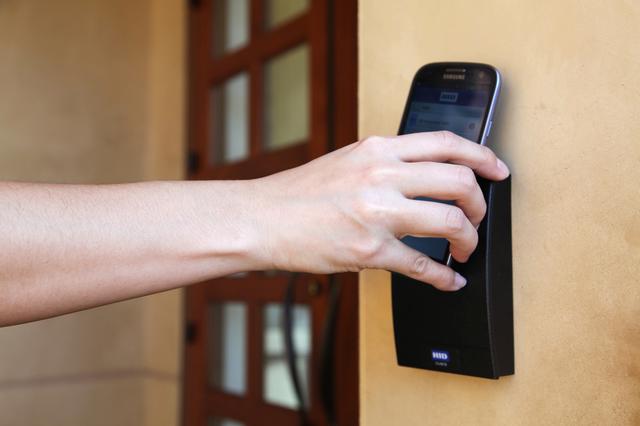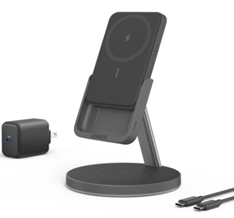IFSEC Global
In an increasingly technology dependent culture, people are looking to leverage their smart devices as much as possible, and mobile credentials can be helpful for both functional and security purposes.
Alex Holmström, Sales Director at ACRE International, discusses the advantages mobile credentials can offer over traditional keys, cards or badges.
Alex Holmström
With COVID-19 still causing uncertainty surrounding businesses reopening and employees returning to the office, mobile credentials offer a convenient option for organisations looking to streamline their security while conserving expenses on hardware.
However, it’s important to note that COVID-19 is not the only reason why so many eyes are fixated on this emerging trend in access control.
More people are using their smartphones to open doors than ever before, and 2022 is set to be significant year for the continued growth of mobile credentials. According to Gartner, Inc., by the end of 2022, 70% of organisations adopting biometric authentication for access in the workforce will execute it via smartphone apps, regardless of the endpoint device being utilised. Considering this figure was fewer that 5% in 2018, its clear things are changing rapidly.
So, what a some of the driving powers behind the adoption of mobile credentials in various organisations?
Convenience
Mobile access control impacts those working in office settings in a very tangible way. Can you remember the last time you left for work without your mobile phone? Unlike and added key card or badge, using mobile credentials means students, staff or employees have one less item them need to carry with them each day.
Smartphones also allow for a much simpler process in assigning credentials. Typically, when generating credentials in an organisational setting, whether through keys, badges, or cards, each option requires workers or students to be physically present in an office to receive their credentials. This is not the case for mobile access control; users don’t have to be physically present or even in the same building to have credentials assigned.

Additionally, as mobile devices have multi-factor authentication, like fingerprints, passwords and facial recognition built-in, there is an added layer of security without the need for new hardware. Smartphones also incorporate location services, alleviating the need to scan a physical badge, and allowing proximity servers to identify when an individual is near the door they have access to.
Identify protection
Because smartphones have become so intertwined with everyday life, most individuals notice if their phone is no longer in reach.
Physical badges, keys, or ID cards that sit in a purse or pocket all day without a second though, could take hours or even days to be identified as lost. This gap in time creates opportunity for someone to enter a building improperly. The system wouldn’t recognise that the individual is not who they say they are when accessed. In areas where much security is needed, such as a hospital or school, this can have disastrous effects.
However, mobile access control creates a different timeline of events. When individuals notice their phone is missing, they can report it, and the credential can immediately be revoked to prevent a security concern.
It’s also important to note that the mobile credential is not accessible until the access control app is launched, meaning the digital badge will not be on display for the imposter to use.
In addition, smartphones typically store identifying information behind password-protected screens. For example, if an individual’s ID badge, card, or key is lost, anyone who picks it up will instantly know what the individual looks like, where they are located, and where they work or attend school. Suppose password protection is vital to your organisation’s needs; in addition to the first layer of password protection, you can require an additional password to access the credentials app on the smartphone as a preventative security measure.
Price
College campuses, hotels, and other organisations focused on hospitality constantly need to replace access cards as students and guests come and go. Mobile credentials can significantly reduce the expenses associated with physical badges, keys, or cards by eliminating the process of rekeying or key duplication. A mobile credential also won’t end up in a landfill at the end of its life, meaning it’s a greener option as well.
In addition to being more convenient and cost-effective to the organisation, mobile credentials are a genuinely suitable option for end-users.
Types of access granted
Mobile credentials can serve as a long-term solution for an individual or as a quick and convenient option for contractors, visitors, guests, and anyone who would need temporary access inside an organisation.
As long as the visitors have the app-enabled on their smartphone, the proper administrators can digitally issue keys before their arrival and revoke them just as quickly.
The future of access control
Mobile credentials are slowly but surely becoming the next revolution in access control. Whether your organisation is looking to switch immediately or in the near future, it’s vital to keep a sharp eye on your security infrastructure now.
If your organisation is currently overhauling its access control system, and even if mobile access isn’t entirely on your radar at the moment, select options that will allow you to migrate to mobile and NFC-enabled devices in the future. Selecting an open and flexible system will ensure smooth adaptation for smart devices for future use.
Also, it’s essential to search for smart readers that can identify different types of credentials. Using an open-architecture solution that verifies multiple sources of contactless credentials and encryption is vital if biometrics are necessary to your organisation. In conclusion, if your organisation is searching for a new access control solution or is on the fence about mobile credentials, make sure to search for manufacturers who offer scalable, flexible, and open-architecture solutions that can support mobile credentials. This proactive step will create a future-proof security solution that will serve your organisation for many years to come.
Keep up with the wireless access control market
Download this free report to find out more about:
Get the report for freeHow mobile access control impacts organisationsAlex Holmström, Sales Director at ACRE International, discusses the advantages mobile credentials can offer over traditional keys, cards or badges.IFSEC GlobalIFSEC Global | Security and Fire News and Resources








